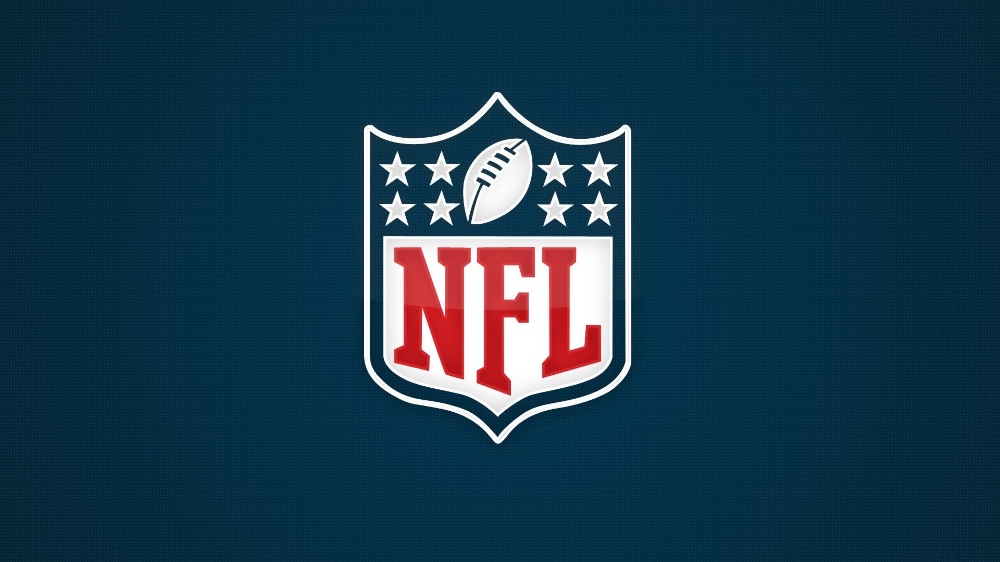Apple has been making a lot of noise lately about spending a lot of money to fill out its programming slate for Apple TV+ and since the company is still not buying Netflix or any other studio — something I still believe is only a matter of time — that means it’s going after live sports.
Which, if you think about it, is a pretty genius move — so of course Apple is doing it.
Why “genius?” Well, TV shows and movies come and go, but sports last forever. NBC’s Football Night in America on Sunday nights regularly ranks among the highest-rated single episodes of programming each year. The Super Bowl is still the biggest night of television viewing in any given year, the advertising dollars for which are increasingly enormous.
Baseball fan? The sport’s popularity has faded over the last couple of decades, but part of the labor dispute that took place over the winter and delayed the start of the season was about picking up the pace of the game and making it more palatable to the viewing public. Apple TV+ believes in the sport enough that it has an exclusive contract with Major League Baseball (said to be worth $85 million annually) to air two games each Friday night on the streaming service. For the season’s first dozen weeks, the games are free, though you can’t watch them on your Android device (you have to watch it through Apple’s website), and after those first 12 Fridays, the circumstances might change as to who can watch what and what kind of subscription they might need, but that’s sort of the point of having the games on the service. If Apple builds it, as in, a streaming home for baseball, people will come to watch.
It makes sense then that Apple would also go after football rights because there is simply no better draw for American eyes than that hard-hitting sport. Baseball is known as America’s Pastime, but it hasn’t been that for quite a long time. And this is coming from a baseball fan who cares less and less about football with each year. Football remains the most popular sport in this country, and it’s not even close. People love football, and it is indisputable that the easiest way to get eyes on your network or your streaming service is to add football to its offerings.
If football is not available, other live sports will do. Basketball, golf, soccer (or, y’know, football to the rest of the world), hockey, rugby, darts — all of them are on some streaming service or other, and if the sport you want isn’t on one of the services to which you subscribe then the only conceivable answer is to subscribe to the one that does.
The first instinct is to wonder why the broadcast networks are allowing these sports to be taken away from them, but what’s interesting about this is that three of the four said broadcast networks are owned by large corporations that also have their own streaming services. NBC? Peacock. CBS? Paramount+. ABC? Hulu and Disney+, depending on the subject matter. Only Fox doesn’t really have its own streaming spot, though some of its series show up on Hulu, because while News Corp. sold the film company and non-news cable networks to Disney a couple of years ago, the broadcast network and Fox News Channel were retained. That said, if you want to stream baseball’s World Series, you can do so on Hulu Live TV+ — which sounds like a mouthful.
The point is that any of the networks that may fight to retain the rights to a given sport may not be fighting so hard if those rights are going to be shared with their in-house streamers. Especially since the whole idea of broadcast television as we know it ended a long time ago. Remember when shows began in September and ended in May? And the summer was a wasteland of reruns and second-rate shows? I barely remember those days myself, even though I’m an old guy who knew only that reality until fairly recently.
Sports on TV used to be a given, a comforting truth on which we could all count. Saturday afternoon? Sit on the couch and watch the ballgame? Sure! Fabulous! Looking forward to it! Except, it hasn’t really been that way for a long time, either. Regional sports networks took over the telecasting of baseball, basketball, and hockey games, and are the only way to regularly watch your favorite teams. If you live in a different city than the one where your favorite team plays — for instance, I am a diehard Boston Red Sox fan, living in New York City — the answer is to spend money to stream Major League Baseball’s service, MLB.tv. It’s worth every penny, but it’s still one more thing to which I need to subscribe in order to watch the things I want to watch.
Apple is just simplifying things for the customer.
And don’t get me wrong, I’m not decrying the change in circumstance. This is how it is these days, and there is simply no going back. Apple knows this, and since it’s already in the game, so to speak, because of baseball, there is no good reason why it shouldn’t also enter the arena for football rights as well.
With so many billions of dollars to spend, it’s only a matter of time before that becomes a reality, too.
**********

One other thing, unrelated to streamers chasing sports rights. In discussing the subject of this week’s column with the Editor of BTL News, I mentioned that I had no interest in writing anything about Elon Musk taking over Twitter, as I wasn’t sure how relevant it was to the subject matter normally covered in this space.
However, something came up in the last few days that made me want to comment on a single aspect of it. Musk talks about establishing Twitter as a sort of “free speech town square,” in which anyone can spout anything they want to say with the freedom to say it. I have discussed this topic before in this space, but it bears repeating once more: that is not how free speech works.
Free speech is only “a thing” in regard to governmental oversight. It prevents a government from stifling something someone wants to say, although there are caveats, the famous one being that you cannot be inciting in your speech, like yelling “fire!” in a crowded theater.
A private platform, such as Twitter, does not censor a person’s speech. It holds people to standards created by the platform, and if someone violates those standards, then the platform is entitled to bar the offender from participating in its community.
This is not censorship. This is private enterprise. Censorship is if you are criticizing the government, and the government stops you from doing it. If Twitter stops you from doing it, you’re probably spreading misinformation, threatening someone, or just being a jerk.
Actions, you see, have consequences. I think Musk knows this and knows that “free speech” is just a clarion call he’s using to rally support from a specific part of the population, and not actually the reason why he wants to buy Twitter. Freedom of speech does not entitle you to have an active account on Twitter or Facebook or any other social media platform. To be a part of those online communities, you just have to abide by certain rules (that all users agree to beforehand) and not be a jerk. And not even that sometimes, if we’re being honest.
It diminishes the idea of free speech to continue to misrepresent it, but then, one of Musk’s best skills is self-promotion, and if misrepresenting an ideal like that fits with his overall goal, then he probably doesn’t see a downside.
Which is bad for the rest of us.
 Neil Turitz is a journalist, essayist, author, and filmmaker who has worked in and written about Hollywood for nearly 25 years, though he has never lived there. These days, he splits his time between New York City and the Berkshires. He’s not on Twitter, but you can find him on Instagram @6wordreviews.
Neil Turitz is a journalist, essayist, author, and filmmaker who has worked in and written about Hollywood for nearly 25 years, though he has never lived there. These days, he splits his time between New York City and the Berkshires. He’s not on Twitter, but you can find him on Instagram @6wordreviews.
You can read a new installation of The Accidental Turitz every Wednesday, and all previous columns can be found here.







